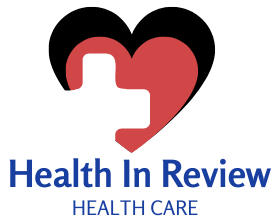What we eat and drink directly impacts our body’s ability to fight infections and can affect the likelihood of developing health issues like obesity, heart disease, diabetes, and cancer later in life. The specific ingredients of a healthy diet are often influenced by various factors. However, some common dietary tips can help us lead healthier and longer lives.
1. Eat a Variety of Foods
Our bodies are incredibly complex, and apart from the initial stage of life where babies only need breast milk, no single food contains the perfect balance of nutrients required by the human body. Therefore, our diet should include a variety of nutritious, fresh foods to maintain good health.
Balanced Eating Tips:
- Your daily diet should include a mix of staple foods like wheat, corn, rice, and potatoes, along with various legumes, plenty of fresh fruits and vegetables, and animal-sourced foods like meat, fish, eggs, and dairy products.
- Opt for whole grain foods, such as unprocessed corn, millet, oats, wheat, and brown rice. These foods are rich in fiber and help increase satiety.
- When choosing snacks, replace high-sugar, high-fat, and high-salt foods with raw vegetables, unsalted dried fruits, and fresh fruits.
2. Reduce Salt Intake
Excessive salt consumption can lead to high blood pressure, a major risk factor for heart disease and stroke. Most people consume too much salt, with the average Chinese daily salt intake being more than twice the recommended amount of 5 grams per day.
Reducing Salt Tips:
- Use less salt when cooking and processing foods, and reduce the use of salty sauces and seasonings (such as soy sauce, broth, or fish sauce).
- Avoid high-salt snacks and opt for fresh, healthy alternatives rather than processed foods.
- Choose canned or dried vegetables, nuts, and fruits without added salt or sugar.
- Do not keep salt shakers or salty condiments on the dining table, as this can encourage the habit of adding extra salt to food. Your taste buds will quickly adjust, and you will soon enjoy flavorful yet low-salt dishes.
- Check food labels and opt for low-sodium products.
3. Reduce Certain Fats
Our diet requires a certain amount of fat, but consuming too much, especially unhealthy fats, can increase the risk of obesity, heart disease, and stroke. Industrially produced trans fats are particularly harmful to health. Diets high in trans fats can increase the risk of heart disease by nearly 30%.
Reducing Fat Tips:
- Replace butter, lard, and shortening with healthier oils, such as soybean oil, canola oil, corn oil, safflower oil, and sunflower oil.
- Choose white meats like poultry and fish, which generally have lower fat content than red meats. Limit the consumption of processed meats.
- Always check food labels to avoid processed foods, fast food, and fried foods that contain industrial trans fats. These are often found in margarine, shortening, pre-packaged snacks, fast foods, baked goods, and fried foods.
4. Limit Sugar in Foods and Beverages
Eating too much sugar not only harms your teeth but also increases the risk of overweight and obesity, leading to serious chronic health problems. Like salt, sugar is often “hidden” in processed foods and drinks. For example, a can of soda can contain up to 10 teaspoons of added sugar!
Reducing Sugar Tips:
- Limit the intake of sweets and sugary beverages, such as carbonated drinks, fruit juices, juice drinks, powdered juice concentrates, flavored drinks, energy and sports drinks, ready-to-drink tea and coffee, and flavored milk drinks.
- Choose healthy, fresh snacks and avoid processed foods.
- Avoid giving children sugary foods. For children under 2, solid foods should not contain added salt or sugar. For children over 2, both sugar and salt should be limited.
5. Avoid Harmful Alcohol Consumption
Alcohol is not part of a healthy diet, but in many cultures, celebrating occasions is often associated with drinking. However, excessive or frequent drinking increases the risk of injuries and can have long-term effects, such as liver damage, cancer, heart disease, and mental health disorders.
The World Health Organization advises: There is no safe level of alcohol consumption; for many people, even small amounts can pose significant health risks.
Safe Drinking Tips:
- Remember: Reducing alcohol consumption is beneficial to health, and it’s best to avoid alcohol altogether.
- Do not drink if you are pregnant or breastfeeding, operating machinery, engaging in high-risk activities, suffering from illnesses worsened by alcohol, taking medication that interacts with alcohol, or lack self-control regarding drinking.
- If you or a loved one may have issues with alcohol abuse or other substance use, do not hesitate to seek help from healthcare workers or specialized services for addiction. The WHO has also created a Self-Help Guide to assist those who wish to reduce or stop alcohol consumption.
Conclusion
By following these five tips from the World Health Organization—eating a variety of foods, reducing salt, fats, and sugar, and avoiding harmful alcohol consumption—you can significantly improve your overall health and reduce the risk of chronic diseases. Remember, small, consistent changes in your diet can lead to a longer, healthier life.




